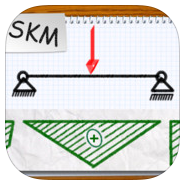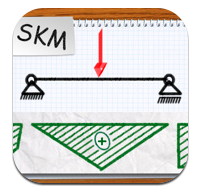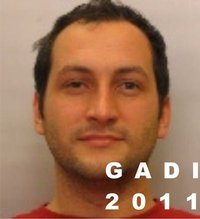Our publicaton „M-Learning in the Field: A Mobile Geospatial Wiki as an Example for Geo-Tagging in Civil Engineering“ pulblished in the book „Looking Toward the Future of Technology-Enhanced Education“ is as Draft Version online available.
Abstract:
In subjects such as Civil Engineering, Architecture, Geology etc., education is mostly based on visual information. For example, in Civil Engineering every building can be seen as a unique object at a certain location. During the education of Civil Engineers many field based studies and excursions take place, however, not only the images but also geographical coordinates are essential. Wikis have been in use for collaborative learning for more than ten years. Mobile phones provide access to them from nearly everywhere. The availability of those technologies has led to rapid advances in the area of m-Learning and the possibility to apply challenging constructive educational concepts. Consequently, in this paper we describe the user centered design, development and evaluation of a combination of these technologies to support collaborative learning in the field: A Wiki-based mobile geospatial information system, the so-called TUGeoWiki. The primary objective of this geowiki is to provide a user-friendly tool for mobile collaborative learning for all areas where geo-tagged information could be useful. Moreover, TUGeoWiki was developed in order to provide the integration of external map material via map APIs including information such as that delivered by Google maps. Subsequently, it is possible to provide both highly detailed maps and satellite images without having the need to license such material. Furthermore, the user interfaces used by such tools is well established, due to the increasing number of mapping related mashups. The evaluation during an extensive field test within a large civil engineering excursion to various large-scale construction sites in Austria demonstrated that collaborative learning can be successfully supported by the application of a geowiki.
Reference: Safran, C., Ebner, M., Kappe, F., Holzinger, A. (2010), M-Learning in the Field: A Mobile Geospatial Wiki as an Example for Geo-Tagging in Civil Engineering, In: Looking Toward the Future of Technology-Enhanced Education, Ebner. M & Schiefner, M. (Ed.), IGI Global, Hershey, pp. 263 – 274
 Das erfolgreiche Lernspiel zum Üben von Schnittkraftlinien, genannt Schnittkraftmeister, ist ab sofort in der Version 1.3 online im Appstore verfügbar. Im Detail erfolgten folgende Änderungen:
Das erfolgreiche Lernspiel zum Üben von Schnittkraftlinien, genannt Schnittkraftmeister, ist ab sofort in der Version 1.3 online im Appstore verfügbar. Im Detail erfolgten folgende Änderungen:


